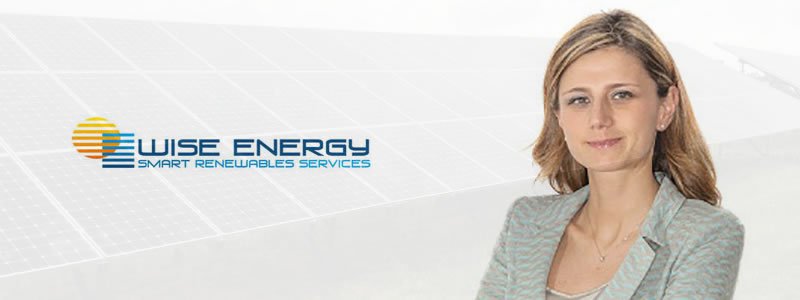
PV portfolio owners could be missing out on profitability improvements by failing to implement a more holistic approach to asset management, according to an expert. Increasingly, though, owners realise they need “a 360-degree approach,” said Maria Sabella, general manager in Italy for WiseEnergy, an asset manager and technical advisor for renewable energy plant lenders and investors.
This new style of service covers not only technical advice but also areas ranging from financial modelling to legal advisory, reflecting the growing number of specialities that can help improve plant profitability. A proactive asset management service should look at all these areas and not just focus on technical performance issues such as panel efficiency.
The impact of reviewing non-technical aspects of asset management can be significant, she claimed. In Italy, for example, plants built three or four years ago may have been subject to loans with interest rates as high as 8% or 9%. Reviewing those loans today to secure lending at more favourable rates could by itself improve the internal rate of return of a project by as much as 2% or 3%.
Another area where financial analysis could help plant owners is in optimising the distribution of profits. With a build-it-and-leave-it approach, Sabella said, it is easy to end up carrying sub-optimal covenants and loan agreements that force asset holders to leave money in the business unnecessarily.
“In the past, the amount of work required to make an investment profitable probably had been underestimated,” she said. “Six or seven years ago, everybody said ‘solar plants are like a bond.’ This is not the case.”
In contrast, she said, with proactive asset management “we run different scenarios to make sure you are getting the right amount dividend.”
Proactive asset management can also help reduce the cost of repowering and upgrading plants by building a business case that allows new equipment to be partly funded from reserves, since more modern technology requires less contingency funds. Awareness of the value of a more wide-ranging, proactive approach to PV asset management is increasing along with growing lender and investor experience, according to Sabella.
“In the past, the amount of work required to make an investment profitable probably had been underestimated,” she said. “Six or seven years ago, everybody said ‘solar plants are like a bond.’ This is not the case.”

While it is still possible to build a plant, sign a long-term operations and maintenance (O&M) contract, and sit back to collect the earnings, many lenders and investors now recognise it is better to proactively manage the asset, she said. This is particularly the case with older plants, which may be saddled with aging equipment, poorly-structured O&M contracts or high-interest debt.
The issue for all but the largest of PV portfolio owners, including big infrastructure investors that may have significant resources but only a limited exposure to renewables, is that proactive asset management is costly if done in house. It requires investment in a wide range of skills, from technical management to regulatory law, which can also vary from one market to another.
Relying on a third party, however, means the cost of a wide-ranging expert team can be split across numerous asset owners. In addition, the company operates a fee structure based on a shared upside, taking a proportion of the benefits that its work delivers for each client.
This means the company is fully aligned with the interests of its client base and the risk to clients is minimised. Another benefit of working with an insourced resource is that its consultants advise a wide cross-section of the European solar industry and so can help spread best practice across the sector.
In June, for example, WiseEnergy conducted a technical due diligence and monitoring project on seven utility-scale solar plants across Italy, on behalf of a major bank. And in May the company signed a framework agreement to provide proactive asset management services across 17 MW of PV, for one of the largest investment funds in the solar market.
The assignment followed a mandate for a 25 MW solar portfolio in March and WiseEnergy’s listing by GTM Research as the leading PV asset manager worldwide, by portfolio size, among companies present in up to four markets. In April this year, meanwhile, WiseEnergy became an affiliate of the Italian national wind energy association, Associazione Nazionale Energia Vento, adding a further strand of expertise to its capabilities.
Within solar, Sabella said WiseEnergy remained committed to extending its services to meet the changing requirements of the market. “Asset management is not all about reporting,” she said. “We are perceived as producing reports, but we can make a difference if you want to maximise returns.”
